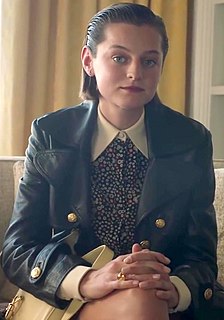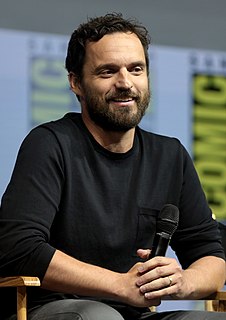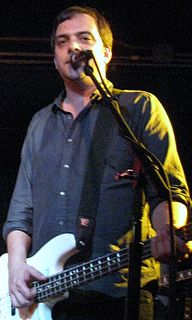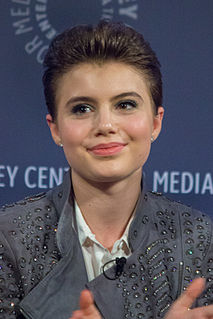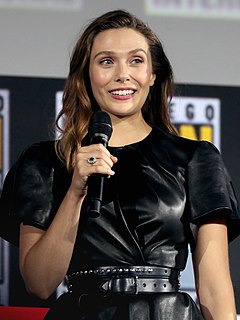A Quote by Peter Jackson
There's no real rules about what you do [while directing]; it's just you just use your instincts as to the pacing of a film and what is repetitive and what is the minimum amount you can get away with to tell the story, that scene didn't make it in.
Related Quotes
My editor and I remain very disciplined. It's just sometimes when you're making a film, you get into the cutting room and you see a scene that's slowing you down in a certain section, but if you remove that scene then, emotionally or story-wise, another scene a half-hour later won't have the same impact. You just get stuck with it.
You have to know everything. You have to know how to light a scene. You have to know all this technical stuff about directing. No, you don't. You can know as much or as little as you have to. Your main job is to get great performances and tell the story correctly and capture it correctly. Then it's just basically yours to complicate or simplify as much as you want.
I've found great virtue in two-thirds of the way into the message; right before I'm really want to nail home a point, pausing to tell a joke or to tell a light-hearted story, because I know my audience has been working with me now for 20 or 25 minutes. And if I can get them to laugh, get oxygen into their system, it wakes up those who might be sleeping, so there's something about using a story to draw people back in right before you drive home your final point. In that case I think it's real legitimate just to use a story for story's sake.
When I make film music, I'm a filmmaker first and foremost. It's about serving the needs of the film. You're telling a story; in a way, you stop becoming a composer and become a storyteller instead. You tell the story with the most appropriate themes. How you approach these things is a very personal matter, but your goal is to tell the story first.
Sometimes the music just has to tell the story without you trying to tell the story. It depends on the type of music you want to make. If it makes you feel good and party then you go with that. If it makes you feel like speaking on something real and doing a story then it's the beat just has to have the story.
If you have to tell a story without speaking, it's sort of like - I come from a dance background, so it's like a ballet where you have to tell a story with just your body. I think that's really interesting to have to tell a story with just your face and your mannerisms, and I'd like to tap into that world.
Probably the most difficult scene to film was the one where I'm attacked. I haven't thought about it in a while because, in hindsight, you make jokes about it and you get funny stories from it. When I was talking about it earlier today, I started to realize that it took a couple days probably to get over. Even if you can laugh about it, it's still the physical things that your body has to go through, it's pretty insane.
Normally my process is to sit in a room and read a script and talk about it and ask questions and just create a dialogue. That goes all the way through shooting. All kinds of thoughts and ideas can find their way in there. As long as you're all on - We're just all trying to tell the story so my job as a director is just to find out what this film wants to be based on, it's just words on a page at some point but then it just needs to go to some level of believable storytelling. I'm discovering the film as I make it, to some degree.
The most difficult thing about acting and directing in a film is acting and directing in a film. Every ounce of your physical and emotional being, and your analytical and thoughtful and producorial being, is being exercised at all points. You are 100% working on overdrive, but because it is only for X amount of days, if you have the stomach for it, you hustle through. It's a massive undertaking, and I think preparation is the key to success for that endeavor.







